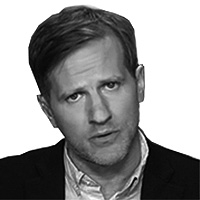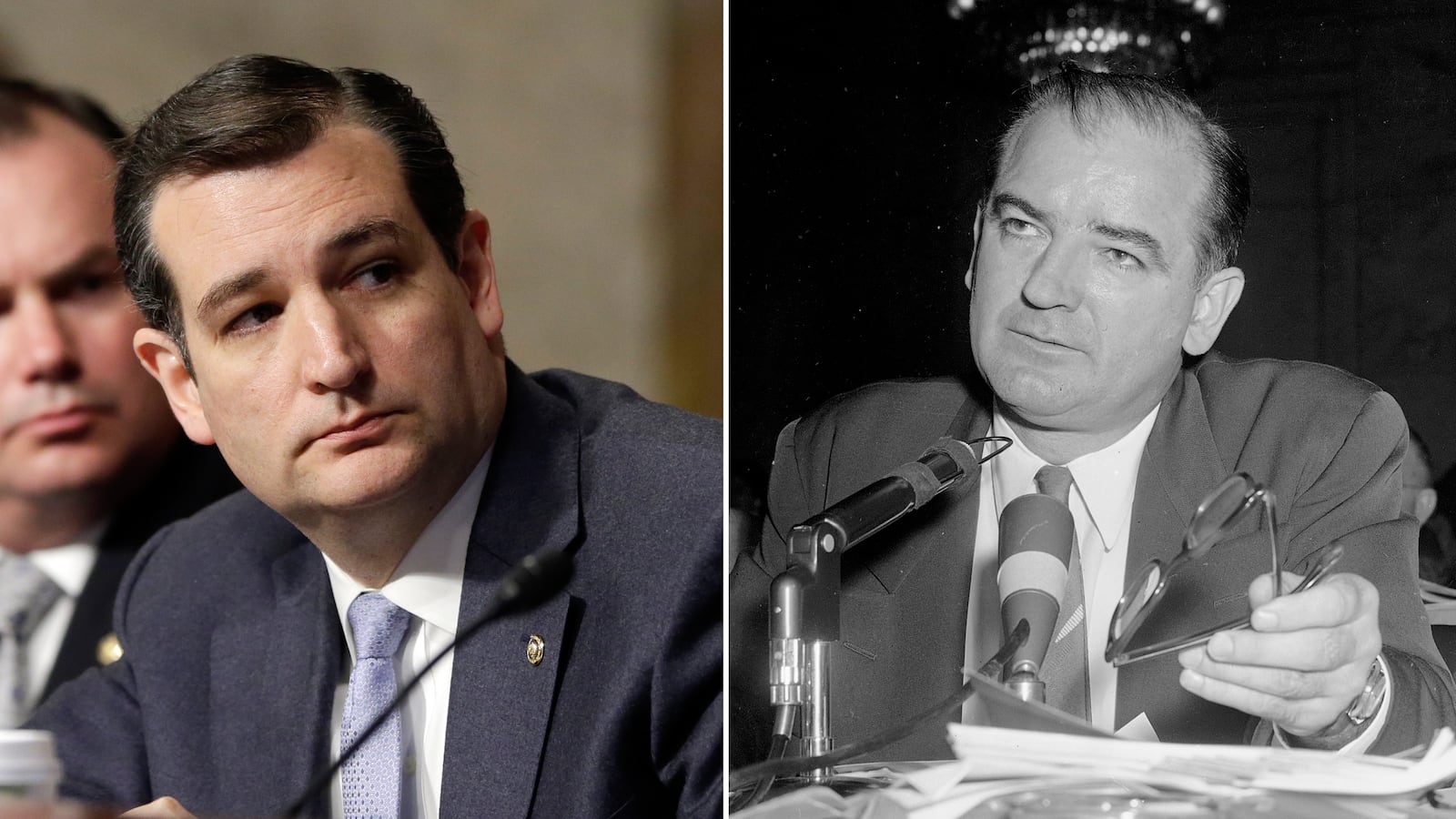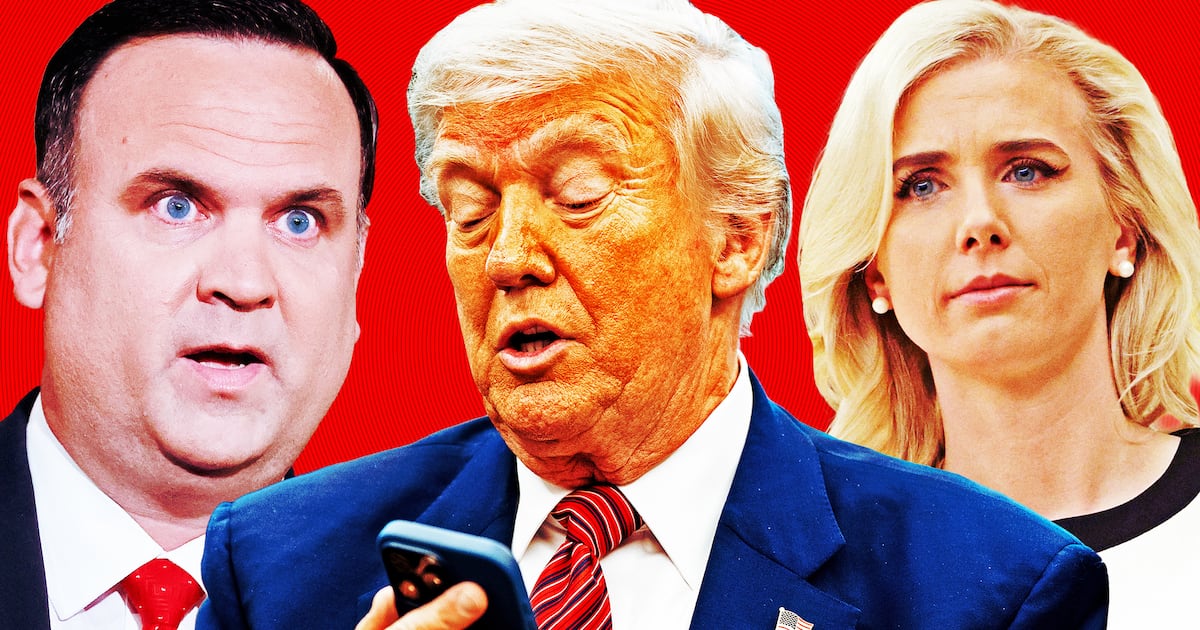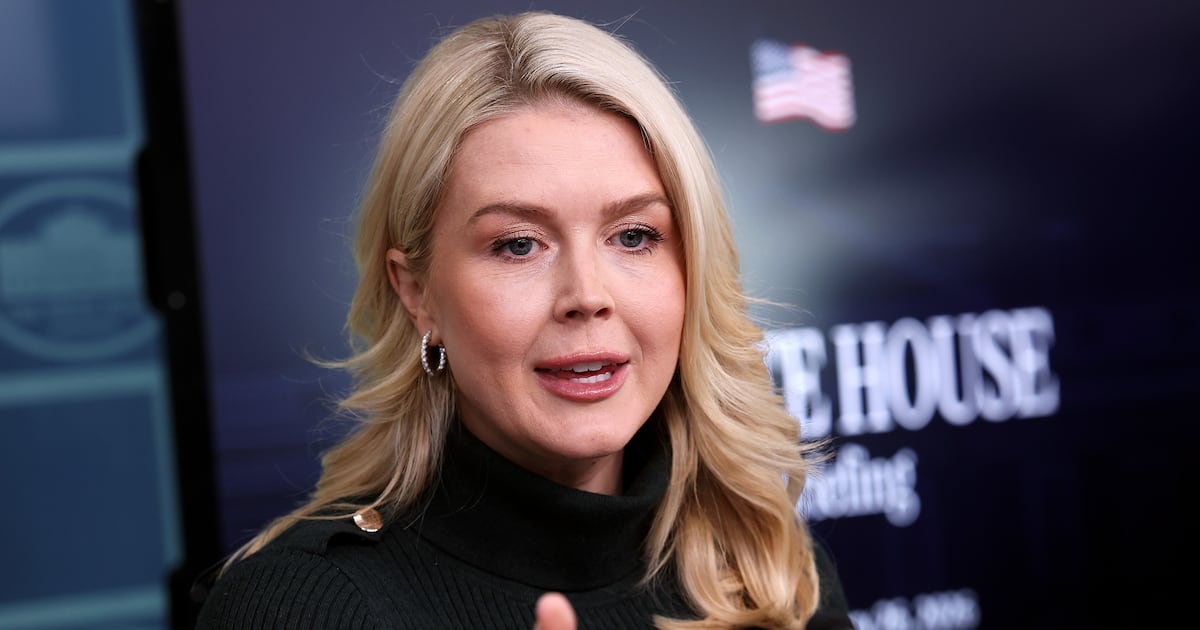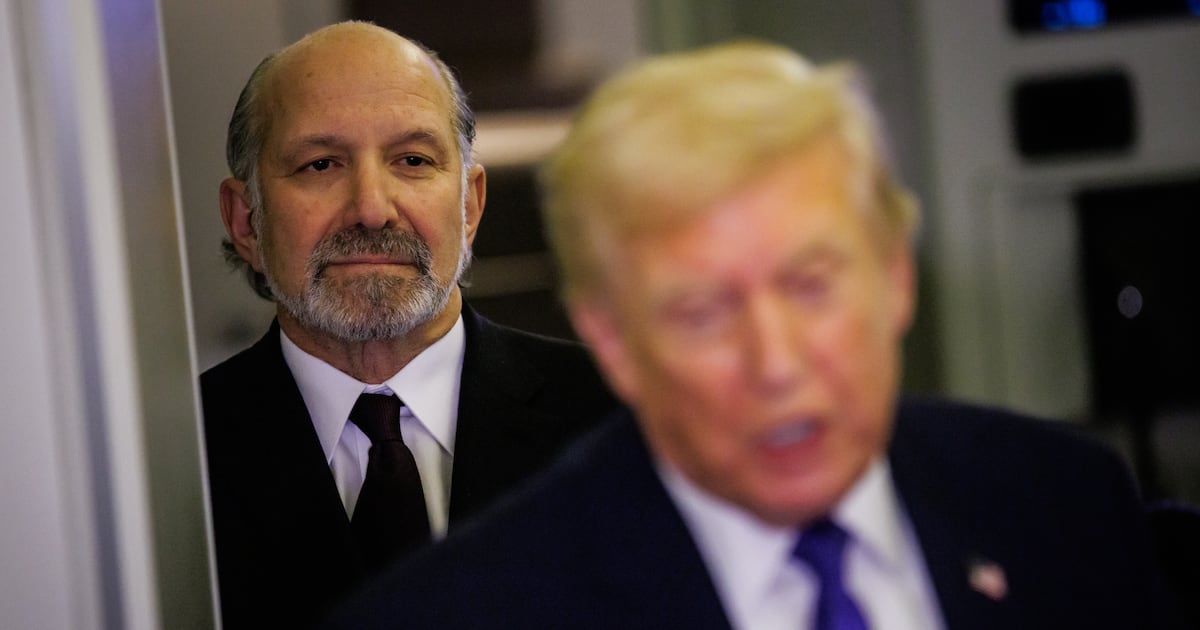If Francis Fukuyama’s declaration that history ended with the Cold War has proven premature, allow me to suggest that the Cold War too never ended. The Iron Curtain might have fallen but according to those pundits who clog my Twitter feed, America is teeming with socialists, Marxists, and McCarthyites. Indeed, the bruising confirmation fight over Secretary of Defense nominee Chuck Hagel has produced a predictable level of partisan shrieking. Is it also replaying a dark chapter in America’s recent history, when so many honorable men’s reputations were besmirched by the dishonorable?

The Nation’s Eric Alterman complains that “Hagel’s critics have been quick to unsheathe the McCarthyite tactics” on a nominee who has been a tough critic of Israel. Hebrew University professor Bernard Avishai, writing on this website, denounced Hagel’s opponents as “neo-McCarthyites.” McGill University professor Gil Troy responded, also on this website, claiming that Hagel’s defenders were “McCarthyites.”
It seems that we’re all Joe McCarthy now.
But if the Hagel hearings had exposed a virulent strain of American McCarthyism, who would play the role of McCarthy?
Enter junior Texas Senator Ted Cruz, a thunderbolt-throwing Republican whose performance during the Hagel hearings has rankled colleagues on both sides of the aisle.
On multiple occasions, Cruz has attacked Hagel for not disclosing the sources of his lucrative speaking fees, speculating that some of that money could have come from unfriendly foreign governments: “It is at a minimum relevant to know if that $200,000 that he deposited in his bank account came directly from Saudi Arabia, came directly from North Korea. I have no evidence to suggest that it is or isn't, but his statement was that he could not even tell this committee that $200,000 did not come directly from a foreign government.”
It’s difficult to determine whether Cruz was being stupid or sinister—or perhaps both—but his “I’m just asking questions, not making accusations” approach provoked a furious backlash.
Watching Cruz’s exchange with Hagel, MSNBC host Chris Matthews “saw Joe McCarthy” in the Texas Republican. Al Sharpton, a newly-minted enemy of irresponsible rhetoric, made the same comparison. Sen. Barbara Boxer too was reminded of McCarthy, recalling those dark days when a senator would say “‘I have here in my pocket a speech you made on such-and-such a date,’ and of course there was nothing in the pocket.” Sen. Claire McCaskill said the “innuendo and inference” reminded her of Joe McCarthy.
Following the uproar, New Yorker writer Jane Mayer reported that, during a speech in 2009, Cruz said that when he attended Harvard Law School the faculty consisted of “twelve [professors] who would say they were Marxists who believed in the Communists overthrowing the United States government” while employing only one Republican (The conservative website RedState called Mayer’s piece—you guessed it—“McCarthyist”). In a 2009 interview with the Christian magazine World, Cruz repeated the charge, but concluded that “the communists on the Harvard faculty are generally not malevolent.”
A Cruz spokesman defended the senator, arguing that his “substantive point was absolutely correct: in the mid-1990s, the Harvard Law School faculty included numerous self-described proponents of ‘critical legal studies’—a school of thought explicitly derived from Marxism–and they far outnumbered Republicans.” Note the switch from revolutionary communism to tedious academic Marxism; an inaccurate statement becomes one that’s reasonably accurate.
But the damage was done. The Huffington Post plastered its homepage with the headline “TED MCCARTHY.” MSNBC’s Rachel Maddow placed photos of McCarthy and Cruz side-by-side, defining McCarthyism as flinging unsupported allegations at a target “but making the allegations really specific, which makes it seem like they must be coming from some factual basis, when in fact you are just making it up.” Joe McCarthy claimed there were “205 communists” at the State Department, Ted Cruz said there were 12 communists on the Harvard law school faculty. (McCarthy’s numbers were wrong, outdated, and referenced flagged “security risks,” but not “made up.”)
According to Maddow, this isn’t an isolated problem. “There is a whole swath of the American right that has decided that McCarthyism should no longer be seen as a bad thing,” she claimed, because “in conservative circles, McCarthy doesn’t necessarily seem like such a bad guy.” It’s an odd claim, especially so when criticizing Cruz for lumping left-liberal professors and communists into one subversive group. Indeed, Maddow might note that the last book-length apologia for McCarthy, M. Stanton Evans' Blacklisted By History, was savaged by the conservative magazine National Review. There are, of course, a handful of radical McCarthy revisionists. But the dominant conservative view was best expressed by liberal journalist Nicholas von Hoffman, who wrote in 1996, after a flood of archival evidence exposed the extent of Soviet infiltrations of the American government, that “point by point Joe McCarthy got it all wrong and yet was still closer to the truth than those who ridiculed him.”
Still, there are some similarities. Like McCarthy, Cruz seems incapable of distinguishing between flavors of liberalism. As Harvard law professor Charles Fried told The New Yorker, Cruz’s diagnosis of his department’s ideological leanings “misunderstands what [the left-wing professors] were about.” But this isn’t an uncommon affliction on either right or left—recall those who argued that the Bush administration borrowed heavily from fascism. If every politician who made unsubstantiated allegations or accused their opponents of extremism was a McCarthy manqué, or every politician who called for greater government intervention in the economy was a Marxist, then Washington is crawling with McCarthyites and Marxists.
Conflating Cruz's rhetoric with McCarthyism might be politically potent, but it’s historically illiterate. There were many other overzealous communist hunters on Capitol Hill whose names didn’t enter the political lexicon (like Martin Dies, whose eponymous committee was later renamed the House Committee on Un-American Activities); McCarthy’s did because his brief and ignominious career was uniquely irresponsible and well-coordinated.
Cruz’s reckless rhetoric has been met with more reckless rhetoric, and the supposedly “McCarthyite” smears are countered with the smear of “McCarthyism.” We should demand better of our elected representatives—and our pundits.
